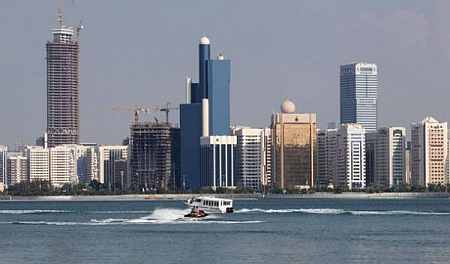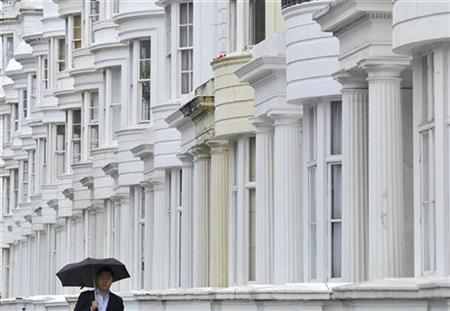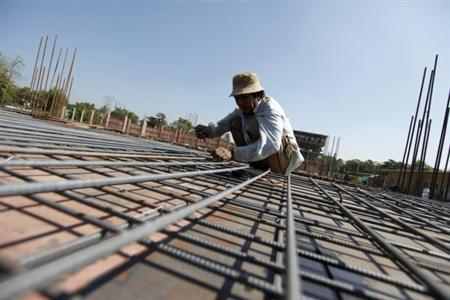 | « Back to article | Print this article |
Buying property abroad can be much cheaper
A three-bedroom apartment (1,000 square feet super built-up) in the Mumbai suburb of Bandra (east) can set you back easily by over Rs 4 crore (Rs 40 million). But for just half the amount, or Rs 2 crore ($400,000), you could own a flat in Dubai.
The only hitch: The property might have to be bought by two people of a family, as the Reserve Bank of India allows a single person to invest only $200,000 a year.
Economic troubles in most foreign countries have led to a sharp fall in property prices. In fact, prices in the US have not recovered after the global financial crisis of 2008.
Click NEXT to read more...
Buying property abroad can be much cheaper
Says Anand Narayanan, national director, residential agency, Knight Frank, "The property price deflation in foreign countries since 2009 has given opportunity for Indians to buy. The relative value has become attractive and a whole lot of people are open to buying property abroad."
Most purchases by Indians are for leisure, lifestyle or utility reasons such as travelling abroad on work or children studying there.
Of late, most Indians are buying under-construction property abroad as they only need to pay 10-30 per cent of the total amount upfront. The residual amount is paid when the property is ready, that is only two-three years later.
The preferred properties are usually in city centres like London, Dubai, New York, Singapore or the Cisco Bay Area.
Click NEXT to read more...
Buying property abroad can be much cheaper
Narayanan says these cities are largely inflation resistant as these are business centres and see a lot of foreign trade.
Only those buy properties here who travel frequently for business or who have children/family there. Or, buyers look at exotic locations such as Thailand, Mauritius, Cyprus.
For the same price, if you buy a property in any of these cities instead of a retirement home in Lonavala / Alibaug, you get a better quality of life along with financial gains, explain experts.
People also buy properties in places which will give resident visa and visa on arrival like Cyprus, Muscat and Dubai.
Click NEXT to read more...
Buying property abroad can be much cheaper
According to Shveta Jain, director, residential services, at Cushman & Wakefield, countries in the Asia Pacific region are being increasingly considered for property investments due to accessibility.
In particular, Malaysia, Indonesia and Thailand are the most popular options. High net worth individuals who travel to these destinations frequently find these options cheaper compared to premium properties in cities like Delhi and Mumbai, she says.
"Rental yields on residential properties abroad are better than in India. In countries like the UK and the US it could be 4.5-6.5 per cent, even higher in Dubai. But we have not yet seen Indians buying property purely for investment," says Narayanan.
Click NEXT to read more...
Buying property abroad can be much cheaper
But, you need to careful when buying properties abroad. For one, you need to have a good agent who should be able to manage the property in your absence.
Also, some of the cities mentioned above like Singapore and Thailand do not allow foreigners to own land. Many countries require foreign buyers to pay large property transaction fees like Singapore, which requires foreigners to pay an extra 10 per cent as stamp duty on purchases.
Engage a consul while buying property abroad who has reasonable experience with issues like inheritance rules as these are stringent in several countries. Like, if the owner passes away the state will take a large stake in the property.
Click NEXT to read more...
Buying property abroad can be much cheaper
While buying large value property ensure you don't violate foreign exchange rules. The RBI permits remittance of up to $200,000 per person per year. So, in case of an expensive property, two family members can buy jointly.
The Foreign Exchange Management Act also allows an Indian to acquire a property outside the country by way of gift or inheritance from a resident outside India.
Unlike India, where property prices have not deflated for decades, prices abroad have deflated.
Click NEXT to read more...
Buying property abroad can be much cheaper
Therefore, location is extremely critical. Prime centre properties are the safest. But the moment you move away from the city you are exposing the asset to deflation risk.
You must also be aware of tax rules of the country where you intend to buy the property. Like, if an Indian has put his property in the US on rent and spends less than two months in that country in a year, he will be a resident and ordinarily resident (RoR) in India.
Here, any income arising from the property will be taxable in both countries, (India and US have Double Taxation Avoidance Agreement) says experts.







